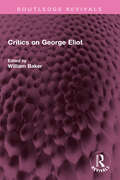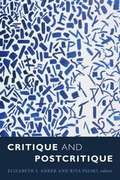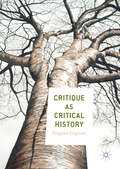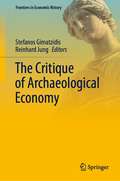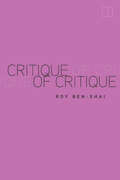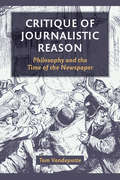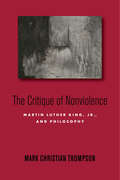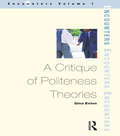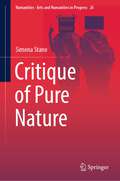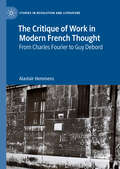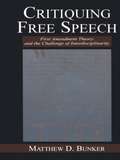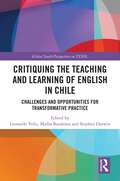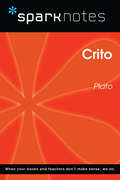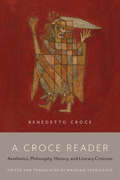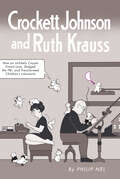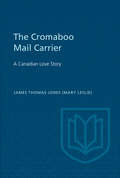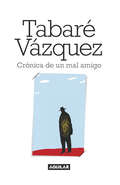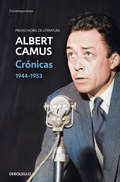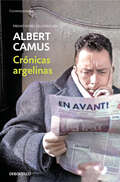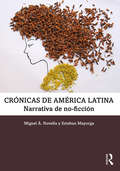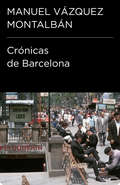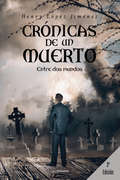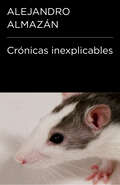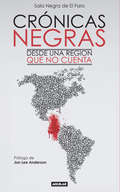- Table View
- List View
Critics on George Eliot (Routledge Revivals)
by William BakerFirst published in 1973 Critics on George Eliot brings together a selection of the best critical essays and discussions on the novels of George Eliot, including many that are not easily available outside well established and comprehensive libraries. The selection covers the whole range of George Eliot’s work, and by setting different critical points of view side by side helps the student to find a position of her own. The intention is not to limit the student’s critical reading to one small volume, but to stimulate to explore the critics more widely for herself and to read the novels again with greater understanding, and pleasure. This is a must read for students of English literature.
Critique and Postcritique
by Elizabeth S. Anker Rita FelskiNow that literary critique's intellectual and political pay-off is no longer quite so self-evident, critics are vigorously debating the functions and futures of critique. The contributors to Critique and Postcritique join this conversation, evaluating critique's structural, methodological, and political potentials and limitations. Following the interventions made by Bruno Latour, Eve Kosofsky Sedgwick, Sharon Marcus and Stephen Best, and others, the contributors assess the merits of the postcritical turn while exploring a range of alternate methods and critical orientations. Among other topics, the contributors challenge the distinction between surface and deep reading; outline how critique-based theory has shaped the development of the novel; examine Donna Haraway's feminist epistemology and objectivity; advocate for a "hopeful" critical disposition; highlight the difference between reading as method and critique as genre; and question critique's efficacy at attending to the affective dimensions of experience. In these and other essays this volume outlines the state of contemporary literary criticism while pointing to new ways of conducting scholarship that are better suited to the intellectual and political challenges of the present. Contributors: Elizabeth S. Anker, Christopher Castiglia, Russ Castronovo, Simon During, Rita Felski, Jennifer L. Fleissner, Eric Hayot, Heather Love, John Michael, Toril Moi, Ellen Rooney, C. Namwali Serpell
Critique as Critical History
by Bregham DalglieshThis book presents the first sustained articulation of a Foucauldian oeuvre. It situates Foucault's critique within the tradition of Kant's call for a philosophical archaeology of reason; in parallel, it demonstrates the priority in Foucault's thought of Nietzsche over Heidegger and the framing of reason against an ontology of power. Bregham Dalgliesh hereby claims that at the heart of the Foucauldian oeuvre is the philosophical method of critical history. Its task is to make the will to know that drives thought conscious of itself as a problem, especially the regimes of truth that define our governmentalities. By revealing the contingency of their constituent parts of knowledge, power and ethics, Dalgliesh demonstrates that critical history offers an alternative mode of critique to the hithertofore singular reading of the intellectual heritage of enlightenment, while it fosters an agonistic concept of freedom in respect of our putatively necessary limits.
The Critique of Archaeological Economy (Frontiers in Economic History)
by Stefanos Gimatzidis Reinhard JungThis book studies past economics from anthropological, archaeological, historical and sociological perspectives. By analyzing archeological and other evidence, it examines economic behavior and institutions in ancient societies. Adopting an interdisciplinary perspective, it critically discusses dominant economic models that have influenced the study of past economic relations in various disciplines, while at the same time highlighting alternative theoretical trajectories. In this regard, the book’s goal is not only to test theoretical models under scrutiny, but also to present evidence against the rationalization of past economic behavior according to the rules of modern markets. The contributing authors cover various topics, such as trade in the classical Greek world, concepts of commodity and value, and management of economic affluence.
Critique of Critique (Square One: First-Order Questions in the Humanities)
by Roy Ben-ShaiWhat is critique? How is it used and abused? At a moment when popular discourse is saturated with voices confronting each other about not being critical enough, while academic discourses proclaim to have moved past critique, this provocative book reawakens the foundational question of what 'critique' is in the first place. Roy Ben-Shai inspects critique as an orientation of critical thinking, probing its structures and assumptions, its limits and its risks, its history and its possibilities. The book is a journey through a landscape of ideas, images, and texts from diverse sources—theological, psychological, etymological, and artistic, but mainly across the history of philosophy, from Plato and Saint Augustine, through Kant and Hegel, Marx and Heidegger, up to contemporary critical theory. Along the way, Ben-Shai invites the reader to examine their own orientation of thought, even at the moment of reading the book; to question popular discourse; and to revisit the philosophical canon, revealing affinities among often antagonistic traditions, such as Catholicism and Marxism. Most importantly, Critique of Critique sets the ground for an examination of alternative orientations of critical thinking, other ways of inhabiting and grasping the world.
Critique of Journalistic Reason: Philosophy and the Time of the Newspaper
by Tom VandeputteAn encounter between philosophy and journalism recurs across the modern philosophical tradition. Images of reporters and newspaper readers, messengers and town criers, announcements and rumors populate the work of such thinkers as Kierkegaard, Nietzsche, and Benjamin. This book argues that these three thinkers’ preoccupation with journalism cannot be separated from their philosophy “proper” but plays a pivotal role in their philosophical work, where it marks an important nexus between their theories of history, time, and language. Journalism, in the tradition Vandeputte brings to light, figures before anything else as a cipher of the time in which philosophy is written. If the journalist and newspaper reader characterize what Kierkegaard calls “the present age,” that is because they exemplify a present marked by the crisis of the philosophy of history—a time after the demise of history as a philosophizable concept. In different ways, the pages of the newspaper appear in the European philosophical tradition as a site where teleological and totalizing representations of history must founder, together with the conceptions of progress and development that sustain them.But journalism does not simply mark the end of philosophy; for Kierkegaard, Nietzsche, and Benjamin, journalistic writing also takes on an exemplary role in the attempt to think time and history in the wake of this demise. The concepts around which these attempts crystallize—Kierkegaard’s “instant,” Nietzsche’s “untimeliness,” and Benjamin’s “actuality”—all emerge from the philosophical confrontation with journalism and its characteristic temporalities.
The Critique of Nonviolence: Martin Luther King, Jr., and Philosophy
by Mark Christian ThompsonHow does Martin Luther King, Jr., understand race philosophically and how did this understanding lead him to develop an ontological conception of racist police violence? In this important new work, Mark Christian Thompson attempts to answer these questions, examining ontology in Martin Luther King, Jr.'s philosophy. Specifically, the book reads King through 1920s German academic debates between Martin Heidegger, Rudolf Bultmann, Hans Jonas, Carl Schmitt, Eric Voegelin, Hannah Arendt, and others on Being, gnosticism, existentialism, political theology, and sovereignty. It further examines King's dissertation about Tillich, as well other key texts from his speculative writings, sermons, and speeches, positing King's understanding of divine love as a form of Heideggerian ontology articulated in beloved community. Tracking the presence of twentieth-century German philosophy and theology in his thought, the book situates King's ontology conceptually and socially in nonviolent protest. In so doing, The Critique of Nonviolence reads King's "Letter from a Birmingham Jail" (1963) with Walter Benjamin's "Critique of Violence" (1921) to reveal the depth of King's political-theological critique of police violence as the illegitimate appropriation of the racialized state of exception. As Thompson argues, it is in part through its appropriation of German philosophy and theology that King's ontology condemns the perpetual American state of racial exception that permits unlimited police violence against Black lives.
A Critique of Politeness Theory: Volume 1
by Gino EelenAs a sociolinguistic phenomenon that connects language and its users to the social world that surrounds them, politeness can provide insights into the very structure of social reality and the process by which it is established and maintained. And through its focus on ethical aspects of social interaction, it can expose the fundamental nature and the inner workings of morality in our everyday lives. Although a highly specific subject matter, politeness therefore touches on issues far beyond its immediate borders. In a critical state-of-the-art review of the field, this book examines the extent to which the potential impact of politeness has been explored so far. Through a metatheoretical analysis of epistemological, methodological, social and psychological ideologies prevalent in mainstream politeness theory, it offers an overview of sociolinguistic thinking about language and social reality during the past quarter of a century. Eelen's analysis of the literature reveals a coherent and consistent ideology underlying the entire field, but also shows how this ideology has caused scientific theory to miss out on many important aspects of the reality of everyday life. His examination of the relationship between science and commonsense thinking, between scientific and everyday notions of politeness, draws attention to issues which remain untouched by current theoretical models and opens up avenues of research hitherto left unexplored.
Critique of Practical Reason (SparkNotes Philosophy Guide)
by SparkNotesCritique of Practical Reason (SparkNotes Philosophy Guide) Making the reading experience fun! SparkNotes Philosophy Guides are one-stop guides to the great works of philosophy–masterpieces that stand at the foundations of Western thought. Inside each Philosophy Guide you&’ll find insightful overviews of great philosophical works of the Western world.
Critique of Pure Nature (Numanities - Arts and Humanities in Progress #26)
by Simona StanoThis book challenges the Western contemporary “praise for Nature”. From food to body practices, from ecological discourses to the Covid-19 pandemic, contemporary imaginaries abound with representations of an ideal “pure Nature”, essentially defined according to a logic of denial of any artificial, modified, manipulated — in short, cultural — aspect.How should we contextualise and understand such an opposition, especially in light of the rich semantic scope of the term “nature” and its variability over time? And how can we — if we actually can — envisage alternative models and approaches capable of better accounting for such richness and variability? The author addresses these fundamental issues, combining an initial theoretical problematisation of the concept of nature and its evolution — from classical philosophy to the crucial changes occurred through the Middle Ages, the Renaissance, Romanticism and the modern era, finally considering recent insights in philosophy, sociology, cultural anthropology and semiotics — with the analysis of its discursivisation — from the iconography of Mother Nature between the past and the present to the representation of catastrophic events in fictional and non-fictional texts, from clean eating and other popular food trends to the ambivalence of the naked body between its supposed natural ascription and its multiple cultural characterisations. Thus she introduces a critique of pure Nature, providing a systematic study of the way nature is attributed meaning and value in some of today’s most relevant discourses and practices, and finally tracing a possible path towards an “internatural turn”.
The Critique of Work in Modern French Thought: From Charles Fourier to Guy Debord (Studies in Revolution and Literature)
by Alastair HemmensWhat is work? Why do we do it? Since time immemorial the answer to these questions, from both the left and the right, has been that work is both a natural necessity and, barring exploitation, a social good. One might criticise its management, its compensation and who benefits from it the most, but never work itself, never work as such. In this book, Alastair Hemmens seeks to challenge these received ideas. Drawing on the new ‘critique-of-value’ school of Marxian critical theory, Hemmens demonstrates that capitalism and its final crisis cannot be properly understood except in terms of the historically specific and socially destructive character of labour. It is from this radical perspective that Hemmens turns to an innovative critical analysis of the rich history of radical French thinkers who, over the past two centuries, have challenged the labour form head on: from the utopian-socialist Charles Fourier, who called for the abolition of the separation between work and play, and Marx’s wayward son-in-law, Paul Lafargue, who demanded The Right to Laziness (1880), to the father of Surrealism, André Breton, who inaugurated a ‘war on work’, and, of course, the French Situationist, Guy Debord, author of the famous graffito, ‘never work’. Ultimately, Hemmens considers normative changes in attitudes to work since the 1960s and the future of anti-capitalist social movements today. This book will be a crucial point of reference for contemporary debates about labour and the anti-work tradition in France.
Critiquing Free Speech: First Amendment theory and the Challenge of Interdisciplinarity (Routledge Communication Series)
by Matthew D. BunkerIn this exceptional volume, Matthew D. Bunker explores the work of contemporary free speech critics and argues that, while at times these critics provide important lessons, many of their conclusions must be rejected. Moreover, Bunker suggests that we be wary of interdisciplinary approaches to free speech theory that--by their very assumptions and techniques--are a poor "fit" with existing free speech theory and doctrine. In his investigation of diverse critiques of free speech theory and his sophisticated rebuttal, he provides an innovative and important examination of First Amendment theory. In doing so, he establishes a new agenda for First Amendment theory scholarship that incorporates some of the critics' insights without abandoning the best aspects of the free speech tradition. COPY FOR MAILER: Distinctive features in this volume include: * an overview of the traditional approaches to First Amendment theory, * an examination of work from key First Amendment scholars and theorists, at both the individual and group level, * an emphasis on interdisciplinarity ranging from femi- nist and critical legal scholars to economists and literary theorists, and * a new agenda for First Amendment theory scholar- ship which incorporates critical comment while pre- serving the best aspects of the free speech tradition.
Critiquing the Teaching and Learning of English in Chile: Challenges and Opportunities for Transformative Practice (Global South Perspectives on TESOL)
by Leonardo Veliz Malba Barahona Stephen Darwin Loreto Abarzúa Silva Rommy Anabalón Schaaf María Cristina Arancibia Natalia Asenjo Roxana Balbontín-Alvarado Darío Luis Banegas Corinne Barger Víctor Birkner Diego Cabezas Bravo Tatiana Cárcamo Rojas Tamara Cortés Seitz Martha Epperson Eric Gómez Burgos Alexia Guerra Rivera Pamela Lara-Morales Paulina Moya-Santiagos Carolina Muñoz Muñoz, Belén Alicia Páez Nykoll Pinilla-Portiño Camilo Ramos-Gálvez Priscila Riffo-Salgado Margarita Ulloa Toro, María Yasna Yilorm BarrientosThis edited volume challenges the hegemonic values and practices that have shaped the contemporary state of English language education in Chile, offering a space for a transformative vision that prioritises pedagogical practices grounded in (g)localised methodologies and epistemologies.Providing insights into English language teacher education and the pedagogical practices that teachers enact in diverse contexts, chapters delve into a critical scrutiny of prevalent issues in ELT education and explore new opportunities for innovation, reconsideration and reconceptualisation of policy and practice. Motivated by the drive for transformative, context-sensitive and culturally relevant practice, contributors critically engage with the socio-cultural and socio-political context of Chilean English language researchers, offering a systematic analysis of the profound effects of entrenched neoliberal ideologies in education, as well as how these act to influence and shape teaching practices, policies, and outcomes. In highlighting the inherent limitations and inequities perpetuated by neoliberal policies, contributors offer alternative perspectives and solutions designed to promote more equitable, inclusive, and socially just second language educational practices.Providing a comprehensive examination of the intricate relationship between Chile's political history, socio-economic evolution, and the rise of English language education, this book will be of interest to scholars, researchers, and postgraduate students in the fields of applied linguistics, teaching and learning English as a foreign/second language, and initial English language teacher education. Policy makers working in ELT in the Chilean context may also find the volume of use.
Crito (SparkNotes Philosophy Guide)
by SparkNotesCrito (SparkNotes Philosophy Guide) Making the reading experience fun! SparkNotes Philosophy Guides are one-stop guides to the great works of philosophy–masterpieces that stand at the foundations of Western thought. Inside each Philosophy Guide you&’ll find insightful overviews of great philosophical works of the Western world.
A Croce Reader: Aesthetics, Philosophy, History, and Literary Criticism
by Massimo VerdicchioBenedetto Croce was a historian, humanist, political figure, and the foremost Italian philosopher of the early twentieth-century. A Croce Reader brings together the author’s most important works across the fields of aesthetics, philosophy, history, literary criticism, and the Baroque and presents the “other” Croce that has been erased by scholarly tradition, including by Croce himself. Massimo Verdicchio traces the progress of Croce as a thinker, focusing on his philosophy of absolute historicism and its aesthetic implications. Unlike other anthologies, A Croce Reader includes essays from the Aesthetics of 1902 and key studies on Vico, Hegel, and Pirandello. Verdicchio’s masterful translation of the source material welcomes specialists and non-specialists alike to discover the “other” Croce for themselves.
Crockett Johnson and Ruth Krauss: How an Unlikely Couple Found Love, Dodged the FBI, and Transformed Children's Literature (Children's Literature Association Series)
by Philip NelWinner of the Children’s Literature Association’s 2014 Honor Book AwardCrockett Johnson (born David Johnson Leisk, 1906–1975) and Ruth Krauss (1901–1993) were a husband-and-wife team that created such popular children's books as The Carrot Seed and How to Make an Earthquake. Separately, Johnson created the enduring children's classic Harold and the Purple Crayon and the groundbreaking comic strip Barnaby. Krauss wrote over a dozen children's books illustrated by others, and pioneered the use of spontaneous, loose-tongued kids in children's literature. Together, Johnson and Krauss's style—whimsical writing, clear and minimalist drawing, and a child's point-of-view—is among the most revered and influential in children's literature and cartooning, inspiring the work of Maurice Sendak, Charles M. Schulz, Chris Van Allsburg, and Jon Scieszka. This critical biography examines their lives and careers, including their separate achievements when not collaborating. Using correspondence, sketches, contemporary newspaper and magazine accounts, archived and personal interviews, author Philip Nel draws a compelling portrait of a couple whose output encompassed children's literature, comics, graphic design, and the fine arts. Their mentorship of now-famous illustrator Maurice Sendak (Where the Wild Things Are) is examined at length, as is the couple's appeal to adult contemporaries such as Duke Ellington and Dorothy Parker. Defiantly leftist in an era of McCarthyism and Cold War paranoia, Johnson and Krauss risked collaborations that often contained subtly rendered liberal themes. Indeed, they were under FBI surveillance for years. Their legacy of considerable success invites readers to dream and to imagine, drawing paths that take them anywhere they want to go.
The Cromaboo Mail Carrier: A Canadian Love Story
by James Thomas Jones Douglas LochheadA Canadian love story about Robbie Smith, a 19-year-old mail carrier travelling the old gravel roadway (now Highway 124) between Cromaboo (Erin) and Gibbeline (Guelph). One day on his travels he sees Miss Mary Paxton, an unwed lady, 14 years his senior. He falls in love with her. And so begins our tale.
Crónica de un mal amigo
by Tabare VazquezLa educación como herramienta fundamental para prevenir el cáncer, lainformación y el compromiso de toda la comunidad, son partede los temas que el Dr. Vázquez aborda en éste libro. Un importanteaporte al conocimiento de esta enfermedad, y una ayuda para enfrentarla y perderle el miedo. Bajo la piel de un viejo médico retirado, el Dr. Tabaré Vázquez sigueadelante en este camino de lucha contra el cáncer. Mediante el relato desu despertar vocacional, el aporte de los testimonios de algunos de suspacientes y una serie de recomendaciones claras y precisas se cumple elobjetivo: comprometer a todos en esta lucha.La educación como herramienta fundamental para prevenir el cáncer, lainformación y el compromiso de toda la comunidad, son parte de los temasque el Dr. Vázquez aborda en Crónica de un mal amigo. Un libro queaporta al conocimiento de esta enfermedad, y ayuda a enfrentarla yperderle el miedo."Y se preguntó qué es el cáncer. La primera definición que le vino a lamente fue: «Un mal amigo». Llega sin que lo llamen y se queda sin que loinviten. Corrigió: en ocasiones, sin darnos cuenta, no solo lo llamamossino que además le facilitamos el camino y le abrimos la puerta (...) Un mal amigo. Por eso la tarea fundamental para combatirlo esconocerlo. Y no solamente con la investigación científica, que es tan necesaria, sino en todo nivel. Cómo aparece, cómo se comporta,cómo se evita, cómo se combate. Conocer sus debilidades. Saber que atodos nos compete esta lucha (...) Hoy, cuando los años del ejercicioactivo de la profesión habían quedado muy atrás para aquel viejo médico,renovaba su compromiso de luchar como fuera, de forma inquebrantable,contra este mal".
Crónicas: 1944-1953
by Albert CamusUn testimonio de primera línea sobre un periodo convulso de la historia moderna, con la firma inconfundible del Premio Nobel de 1957 Publicados en la prensa francesa entre 1944 y 1953, los escritos periodísticos recopilados por Albert Camus en este volumen constituyen un testimonio de primera línea sobre un periodo convulso de la historia moderna. En buena parte provienen de los editoriales de la revista Combat, que el autor dirigió entre 1944 y 1947, aunque no faltan las piezas más personales, como las que responden a la polémica suscitada por El hombre rebelde. El conjunto nos muestra a un escritor incisivo y siempre abierto al diálogo al considerar los hechos más relevantes de su tiempo. Sobre la obra:«La modernidad de Albert Camus debe probablemente mucho al periodismo.»María Santos Sáinz, autora de Albert Camus, periodista: De reportero en Argel a editorialista en París «Camus elaboró una verdadera filosofía de un periodismo crítico, cuyos ejemplos se han vuelto escasos hoy en día.»Robert Kopp «Sus tomas de posición eran audaces, tanto sobre la cuestión de la independencia de Argelia como sobre sus relaciones con el Partido Comunista Francés.»France Inter
Crónicas argelinas
by Albert CamusUn volumen con todos los artículos de Albert Camus dedicados a su Argelia natal Publicado en 1958, en plena guerra de Argelia, Crónicas argelinas reúne los artículos que Albert Camus dedicó a su tierra natal a partir de 1939, cuando trabajaba como reportero en el periódico Alger-Républicain, y más tarde como miembro de la prensa parisina. Con su habitual lucidez, el autor aborda asuntos concretos como la penuria de la región de Cabilia, el malestar político de los años cuarenta, el desgarramiento de la identidad nacional o la necesidad de una tregua civil. Pero también ofrece agudas críticas de las inequidades históricas del colonialismo y reflexiones sobre una posible concordia que conservan toda su vigencia.
Crónicas de América Latina: Narrativa de no-ficción
by Miguel Á. Novella Esteban MayorgaCrónicas de América Latina: narrativa de no-ficción es la primera edición de una novedosa antología de crónicas diseñada para la enseñanza de español avanzado. Los textos, fascinantes y accesibles, permiten que los estudiantes se adentren en la compleja realidad contemporánea, tanto política como social y cultural, de América Latina, mientras refuerzan la lectura, la redacción y la conversación. Los ejercicios, todos ellos diseñados a partir de los propios textos, pretenden repasar problemas gramaticales y léxicos tradicionales, con especial énfasis en aquellos que atañen a las variedades dialectales del español americano: por ejemplo, el uso del pronombre ‘vos’. Este libro es un excelente material de lectura que puede usarse en clases de español como segunda lengua o en clases de español para hablantes de herencia, tanto en clases de lengua (gramática o conversación) como de contenido (cultura). Dividido en nueve capítulos, el material abarca temas cruciales tales como política, identidad, raza, género, inmigración, violencia, exilio, medio ambiente, gastronomía, fútbol y música. Cada texto puede leerse de forma independiente, lo que permite que los profesores seleccionen las lecturas según las particularidades de cada curso. Pensado en un principio para estudiantes de español, esta antología es sobre todo una lectura indispensable para cualquier persona interesada en la zona que concentra el mayor número de hispanohablantes en el mundo.
Crónicas de Barcelona (Colección Endebate #Volumen)
by Manuel Vázquez MontalbánManuel Vázquez Montalbán, cronista de la vida cotidiana de Barcelona. Manuel Vázquez Montalbán fue uno de los columnistas más influyentes de la segunda mitad del siglo XX español, Crónicas de Barcelona recoge tres crónicas periodísticas de su primera época, tres descripciones de tres clases sociales que marcaron una época: la alta burguesía franquista (1961), la clase popular (1961) y esa burguesía juvenil conocida como La Gauche Divine que protagonizó un nuevo movimiento cultural. Una sociedad que adquiere una luz muy particular bajo la pluma crítica de Vázquez Montalbán.
Crónicas de un muerto: Entre dos mundos
by Henry López JiménezLa búsqueda de respuestas es una decisión que nos llevará al despertar. Les invito a hacer un viaje misterioso al otro lado. Juan Bardo, al ocaso, vaga por el cementerio, y al alba regresa a su sepulcro. De seres celestiales y espectros aprende. Entrelazando la vida y la muerte nos narra su historia. El destino del cuerpo y del alma sus experiencias nos enseñarán. Prepara los oídos de tu alma.
CRONICAS INEXPLICABLES
by Alejandro AlmazánUn fantástico libro de crónicas por Alejandro Almazán, autor de El más buscado. Por estas páginas desfilan un narco sin suerte: Jota Erre, quien luego de seis intentos (fallidos) de incursionar en el negocio del siglo, decidió dedicarse a la cantada; las ratas gigantes de Atascaderos, Chihuahua, que aún asuelan a la población y que las autoridades siguen ignorando; los 200 mil dólares que Margarito "encontró" en el cerro y que le valieron la ruina; el exorcismo que en el año 2000 dejara un saldo de siete muertos y 70 mil incógnitas en una pequeña población de Tlaxcala. Acérquese. Adéntrese en estas historias. Inexplicables, escritas por uno de los mejores cronistas mexicanos de la actualidad.
Crónicas Negras. Desde una región que no cuenta
by Sala Negra de El FaroAquí están las protagonistas de la violencia; vemos sus caras, sus gestos, escuchamos sus voces, suenan los tiros y caen los muertos casi a nuestros pies... Centroamérica es una región que poco conoce la palabra paz. Tras las guerras civiles de finales del siglo pasado, sus países recibieron una oleada de deportados, muchos de ellos pandilleros que inauguraron una nueva guerra en las calles. Eso, sumado a unos Estados débiles y corruptos, un crimen organizado que ve en estos lares una suculenta plaza y unas víctimas que apenas son escuchadas compone una de las regiones más violentas del mundo, y una de las menos contadas. Los valientes reporteros de El Faro, Carlos Martínez, Roberto Valencia, Daniel Valencia Caravantes, José Luis Sanz, Óscar Martínez y Juan Martínez, llevan más de tres años inmerso en ese charco oscuro de la violencia y, nos adentran con deslumbrante intimidad en historias de horror real,contadas con toda la terrible fuerza y complejidad de la vida actual.
